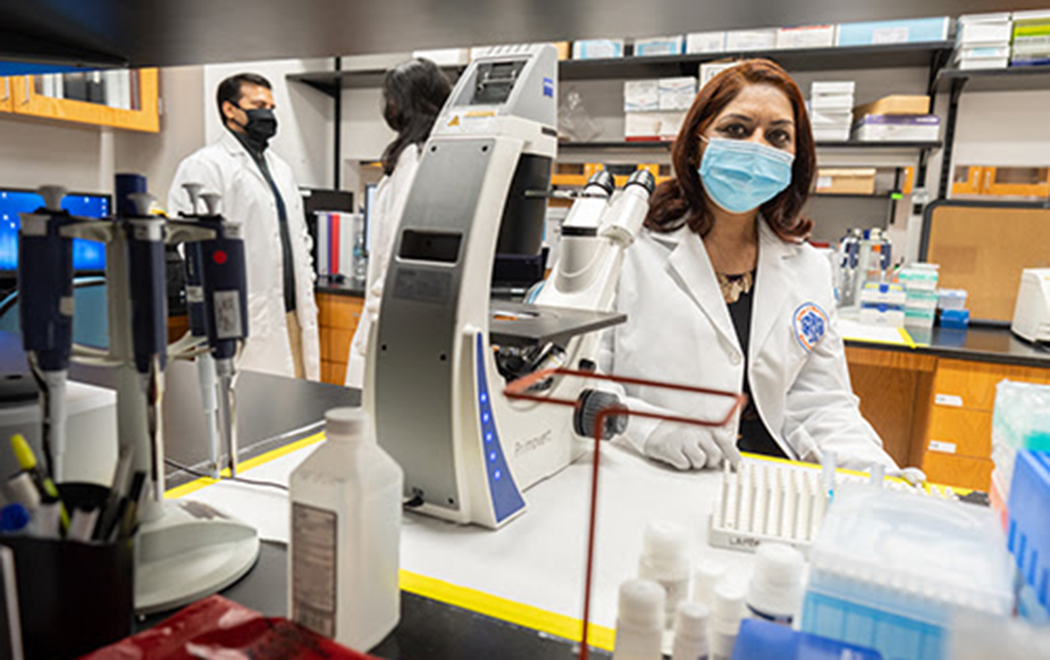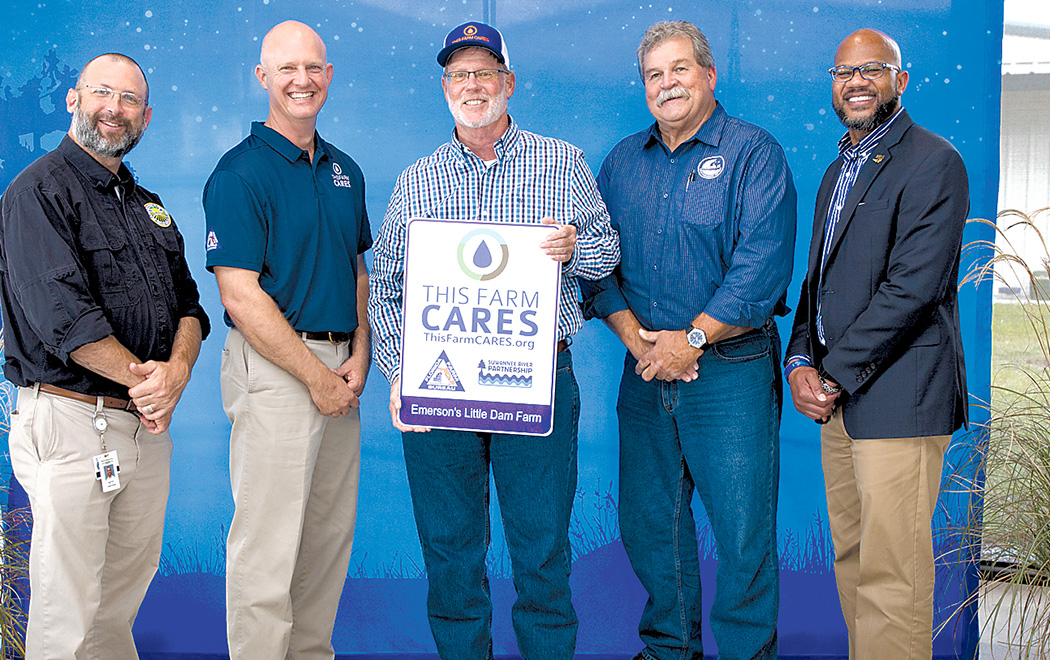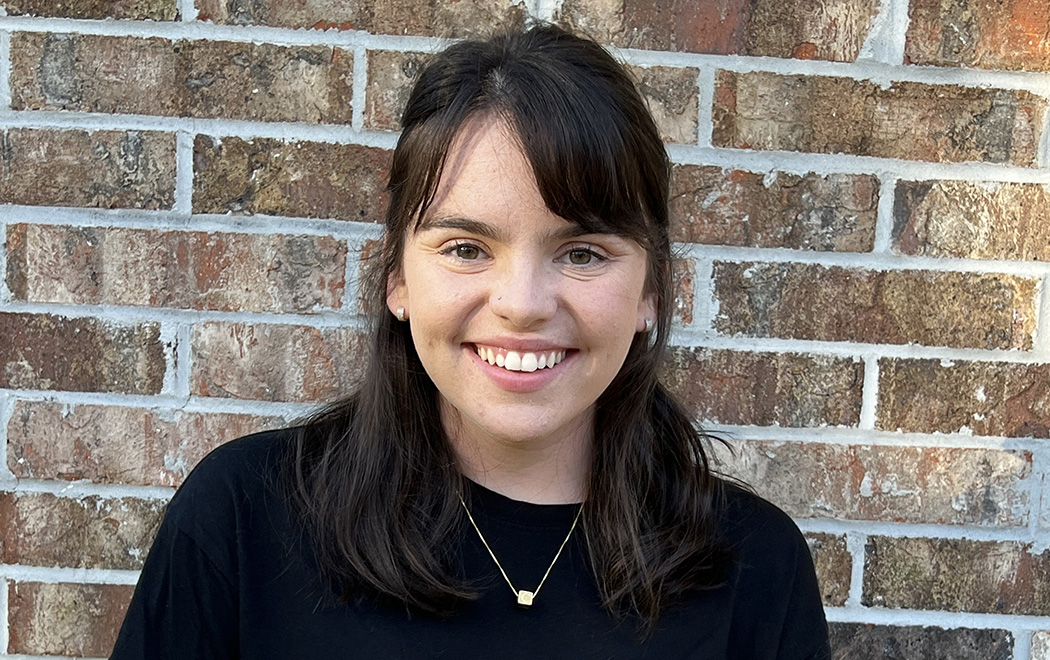
Jatinder Lamba, Ph.D., M.Sc., led a team of researchers who developed a new genetic score to improve pediatric cancer treatments.
University of Florida researchers have developed a new genomics-based score to deliver more personalized and effective chemotherapy treatments to pediatric leukemia patients.
The predictive score brings a precision medicine approach to treating childhood acute myeloid leukemia, or AML, a common form of childhood leukemia.
AML spreads rapidly and affects the bone marrow and blood. The chemotherapy drug cytarabine has been a mainstay of AML treatment for more than 50 years. However, it fails to induce remission in about 10-15% of children, and another 40% will relapse after achieving remission.
In a study published in the Journal of Clinical Oncology, one of the top journals in the field, UF researchers outlined how they developed a patient-specific polygenic score to improve treatment outcomes. The score was generated by performing a comprehensive pharmacogenomic evaluation of cytarabine’s drug pathway in the body and predicting how much of the drug is activated in a cell.
“Cytarabine must be activated to effectively kill leukemia cells, but the amount of activation varies based on an individual’s genetics,” said Jatinder Lamba, Ph.D., M.Sc., the study’s lead author and a professor of pharmacotherapy and translational research in the UF College of Pharmacy, a part of UF Health, the university’s academic health center. “We anticipated our score would predict the outcome — and it did — but what was really interesting is that we were able to show if the patient had a low, or detrimental score, the outcome could be improved by augmenting the patient’s therapy.”
The study included more than 1,000 pediatric cancer patients treated through multisite clinical trials at St. Jude Children’s Research Hospital and the Children’s Oncology Group. It suggested patients with a low polygenic score would benefit from increased dosing of cytarabine or additional targeted therapies in their chemotherapy regimen. Meanwhile, patients with a high score may benefit from a less-intensive chemotherapy regimen — avoiding some of the toxicity associated with cytarabine.
“With this score, we can genetically define those patients who would benefit from intensifying the chemotherapy or adding a new cancer drug to the regimen and on the other side of the spectrum having their chemotherapy reduced to avoid toxicity,” Lamba said. “The score gives clinicians a new tool to devise an effective treatment strategy and deliver the best possible outcome to AML patients. It also has the potential to improve the guidelines for delivering AML chemotherapy.”
Another key finding in the study involved the role race and ethnicity play in generating the predictive score. UF researchers found the high score significantly differed by race, with 70% of white patients and only 30% of Black patients having a beneficial score. The study’s results suggest the polygenic score could be one of the underlying contributors to observed racial disparities in AML patient outcomes and may have the potential to reduce the observed racial disparities by optimizing treatment.
Lamba, the Frank A. Duckworth Eminent Scholar Chair in the UF College of Pharmacy and a member of the UF Health Cancer Center, said further exploration is needed to determine whether Black patients would benefit from a higher dose of cytarabine or additional drugs in their chemotherapy regimen.
“This study opens opportunities for examining how race and ethnicity impact AML patient response to cancer treatments,” Lamba said. “We need to be more conscious of racial disparities in cancer care and continue to investigate why we are seeing different outcomes by race.”
Lamba has joined a consortium of researchers in Africa studying racial disparities in cancer treatment. She expects the collaboration will create new opportunities for studying drug response in Black patients and allow for further research involving the new scoring model.
“Dr. Lamba’s innovative research program explores hidden genetic complexity behind response to therapy and serves as a cautionary lesson to all cancer researchers to enroll robust numbers of diverse individuals in clinical trials, in order to elucidate and address disparities,” said Jonathan Licht, M.D., director of the UF Health Cancer Center. “This is a theme embraced across all UF Health Cancer Center research programs.”
The study “Polygenic Ara-C Response Score Identifies Pediatric Patients With Acute Myeloid Leukemia in Need of Chemotherapy Augmentation,” was published Jan. 6 in the Journal of Clinical Oncology, a peer-reviewed medical journal published by the American Society of Clinical Oncology. Multiple investigators from St. Jude Children’s Research Hospital, the Children’s Oncology Group, Tennessee Health Sciences Center, Fred Hutchinson Cancer Research Center, Children’s Mercy Hospital, Nemours Children’s Health and the University of Florida contributed to the study.
# # #
Email editor@
alachuatoday.com




